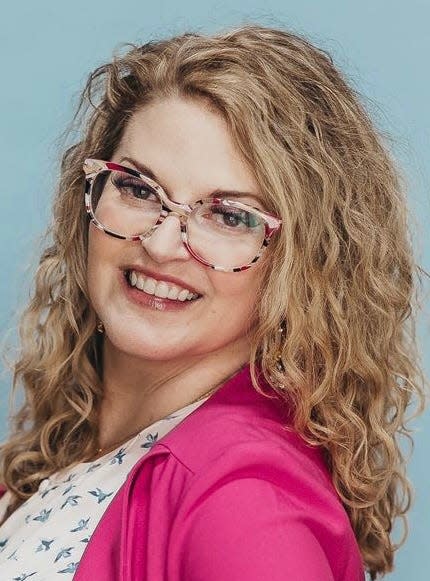Mental Health Matters: We mark grief in our own ways and on our own timeline
Last month marked the 10th anniversary of my father-in-law’s death. He died of pancreatic cancer, just two years after his diagnosis.
The short time we had was a whirlwind of doctors’ appointments, chemotherapy and radiation treatments, and a grueling Whipple surgery, but the cancer was unrelenting. Leon was 65 years old.
When he died I was pregnant with my first child, the first grandchild on that side of the family. I desperately wanted Leon to meet my little girl, but it was not in the cards. He did, however, see a sonogram and made a comment about her dancing around like Michael Jackson.
After his death a part of my husband died. They were best friends, business partners, father and son. The grief was overpowering for all of us, but of course, my husband struggled the most. I mourned my child’s grandpa and a father-in-law who was always kind and supportive of me.
I let that grief overwhelm me, and it became fast friends with my depression and anxiety. I stayed in bed. Cried all day. Stopped showering. I did the bare minimum when I should’ve been supporting my husband.
Tears threaten to fall just remembering that.
Six months after we buried my father-in-law, I gave birth to my daughter, Isla. Twenty-three months after that, I had my son, Eli Leon.
What helps with our grief is sharing Leon with our kids — telling stories, showing pictures, explaining Wilmer, his plastic rat that had a lot of adventures with Leon, and so much more. We had teddy bears made out of Leon’s famous Hawaiian shirts and went to his favorite barber shop to get the kids’ first haircuts, the second generation to do so. We tell them how cool it is for them to be sixth generation Corpus Christ-ians and how their great-great-great grandma’s wedding dress is at the Corpus Christi Museum of Science and History. I guess that’s one of the best weapons to combat grief — you keep your loved one’s memory alive and honor their life.
On the anniversary of Leon’s death last month, we went to the Hebrew cemetery and placed smooth stones on Leon’s headstone. Even though it has been 10 years, there hasn’t been a day or so when I haven’t thought of him and how he would love to see how weird (in a good way) my children are or how respected his son is in the community. Maybe how proud he might be of me. His approval meant so much to me, and so many things have changed in a decade.
I try not to play the “what if” game, but it’s hard not to do. My chest tightens and tears brim, and even though I have the life I know I’m supposed to be living, I feel regret that he couldn’t meet our kids. But logically, I know there’s nothing I can do about that, but still, pangs shoot through my chest.
Grief will do that to you, even after so long. Death of a loved one is something you don’t get over - you come to terms with it. Maybe there’s a hole in your heart that you can’t really patch up no matter how hard you try.
Deep grief, which most of us will experience at one point, can consume us and often make us question our own sanity. Everyone will give you a time limit on how long is healthy to grieve but is there such a thing?
Some mental health professionals will say yes and might tell you about complicated grief disorder which is when painful emotions are so long lasting and severe that you have trouble recovering from loss and resuming your life.
I’m no professional but a lot of grief is complicated, especially if you don’t have a chance to say goodbye or someone dies by suicide. Honestly, no matter what happens, most everyone (this is conjecture) feels like they were cheated by time in the end. Only a lucky few get a happy ending, but grief and loss are still there.
Grief is so difficult. It’s ok to be sad when a loved one dies. It’s ok to be depressed (temporarily). It’s ok to cry for someone 10, 20, 30 years after they die. There’s no right way to do grief. Talk to a friend, journal, go to counseling, talk to your doctor, do yoga, meditate — or don’t, if that doesn’t feel right for you. Do it your way.
Honor your loved one’s memory and take care of yourself in a healthy way.
It’ll get easier.
Any day now.

For more than 20 years, Heather Loeb has experienced major depression, anxiety, an eating disorder and a personality disorder, while also battling the stigma of mental health. She is the creator of Unruly Neurons (www.unrulyneurons.com), a blog dedicated to normalizing depression and is the Affiliate Leader of NAMI Greater Corpus Christi.
This article originally appeared on Corpus Christi Caller Times: Mental Health Matters: We mark grief in our own ways, own timeline
